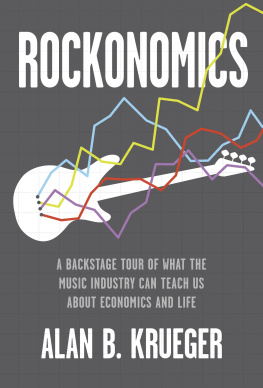Analyzing & Reporting Focus Group Results
Richard A. Krueger
Analyzing & Reporting Focus Group Results
Focus Group Kit
Copyright 1998 by Sage Publications, Inc.
All rights reserved. No part of this book may be reproduced or utilized in any form or by any means, electronic or mechanical, including photocopying, recording, or by any information storage and retrieval system, without permission in writing from the publisher.
For information:
 | SAGE Publications, Inc.
2455 Teller Road
Thousand Oaks, California 91320
E-mail:
SAGE Publications Ltd.
6 Bonhill Street
London EC2A 4PU
United Kingdom
SAGE Publications India Pvt. Ltd.
M-32 Market
Greater Kailash I
New Delhi 110 048 India |
Printed in the United States of America
Library of Congress Cataloging-in-Publication Data
Morgan, David L., Krueger, Richard A.
The focus group kit.
p. cm.
Includes bibliographical references and indexes.
Contents: v. 1. The focus group guidebook/David L. Morgan, v. 2. Planning focus groups/David L. Morgan, v. 3. Developing questions for focus groups/Richard A. Krueger. v. 4. Moderating focus groups/Richard A. Krueger. v. 5. Involving community members in focus groups/Richard A. Krueger, Jean A. King. v. 6. Analyzing and reporting focus group results/Richard A. Krueger.
ISBN 0-7619-0760-2 (pbk.: The focus group kit: alk. paper)
1. Focus groups. I. Title. II. Series. III. Morgan, David L. IV Krueger, Richard A.
H61.28K7781997
001.433dc21
97-21135
ISBN 0-7619-0818-8 (v. 1 pbk.)
ISBN 0-7619-0817-X (v. 2 pbk.)
ISBN 0-7619-0819-6 (v. 3 pbk.)
ISBN 0-7619-0821-8 (v. 4 pbk.)
ISBN 0-7619-0820-X (v. 5 pbk.)
ISBN 0-7619-0816-1 (v. 6 pbk.)
This book is printed on acid-free paper.
00 01 02 03 10 9 8 7 6 5
| Acquiring Editor: | Marquita Flemming |
| Editorial Assistant: | Frances Borghi |
| Production Editor: | Diana E. Axelsen |
| Production Assistant: | Karen Wiley |
| Typesetter/Designer: | Janeile LeMaster |
| Cover Designer: | Ravi Balasuriya |
| Cover Illustration: | Anahid Moradkhan |
| Print Buyer: | Anna Chin |
Brief Table of Contents
Detailed Table of Contents
Acknowledgments
M y roots in textual analysis go back to undergraduate studies at Bethel College and to religious leaders who taught Biblical interpretation. Their painstaking rigor taught me that words have a beautiful ability to communicate. These teachers taught me that words were special and that diligence and care were needed to unlock what was meant.
This book builds on a rich legacy of academic researchers who have insisted on careful attention to systematic procedures. These scholars come from many disciplines. Their skill is complex and often undervalued, but theyve contributed greatly to our understanding of language and communication.
Mary Anne Casey and I have worked together on a number of focus group projects. She has taught me a great deal about the analysis and reporting process, and much of what is contained in this book grows out of her common sense and insightful approaches. Her solid grounding in academic approaches combined with her practical, no-nonsense writing style have created scores of high-quality and very readable reports.
Michael Q. Patton has taught me how to think about analysis. He has the remarkable ability to get to the heart of the issue and describe it in no-nonsense terms. He continually raised my level of understanding through the careful processing of information. These tools are indispensable to the analyst.
David Morgan, friend and valued colleague, invited me to assist in the preparation of this collection of books and has been invaluable in offering suggestions and strategies that clarify the writing and presentation of ideas.
Im indebted to a cadre of professional moderators who continually strive to improve their own skills. Day after day they are on the road, listening, analyzing, and presenting results. They are a wonder to watch because they move seamlessly through the analysis process, produce results on time, and do it with the highest of quality. Marilyn Raush and Reyn Kinzey are examples of such people; I am grateful for their additions to this volume.
Thanks to the many masters of focus group interviewing. They have continually pushed for the highest quality results, and they have taught many others by their personal example, their writing, and their sharing of ideas. While many names could be mentioned, I am particularly appreciative to Saul Ben-Zeev, Harold Cook, Mary Debus, Thomas Greenbaum, Naomi Henderson, Judy Langer, Tom Quirk, and Susan Schwartz McDonald.
The production quality was improved by Susan Wladaver-Morgan, who offered editing suggestions. The staff at Sage Publications continually were most helpful. Their editors were encouraging, creative, and willing to take risks. Special thanks to Diana Axelsen, Ravi Balasuriya, Marquita Flemming, and C. Deborah Laughton for eagerly contributing their talents.
A good book is one that touches us in several ways. It should be serious, yet funny. It should be challenging, yet comfortable. It should raise the level of thought. But most of all, it should be fun to read. The best test is if you read more than what you intended. I hope that this book does that for you. May you find the insight, the seriousness, the guiding principles, and the humor in this volume.
Introduction to the Focus Group Kit
W e welcome you to this series of books on focus group interviewing. We hope that you find this series helpful. In this section we would like to tell you a bit about: our past work with focus groups, the factors that led to the creation of this series, and an overview of how the book is organized.
We began our studies of focus group interviewing about the same time. Our academic backgrounds were different (David in sociology and Richard in program evaluation) and yet we were both drawn to focus group interviewing in the 1980s. We both had books published in 1988 on focus group interviewing that resulted from your research and practice with the methodology. At that time we were unaware of one anothers work and were pleased to begin a collgial relationship. Over the years weve continued our studies independently, and occasionally our paths crossed and we had an opportunity to work together. In the last decade, weve worked together in writing articles, sharing advice on research studies, and teaching classes. We have generally found that we shared many common thoughts and concerns about focus group interviewing.
During the 1990s, we found that interest in focus groups continued and we both prepared second editions for our 1988 books. In 1995, the staff at Sage Publications asked us to consider developing a more in-depth treatment of focus group interviewing that would allow for more detail and guide researchers beyond the basic issues. We pondered the request and thought about how the materials might be presented. We weighed a variety of options and finally developed the kit in its present form. We developed this kit in an effort to help guide both novices and experts.









